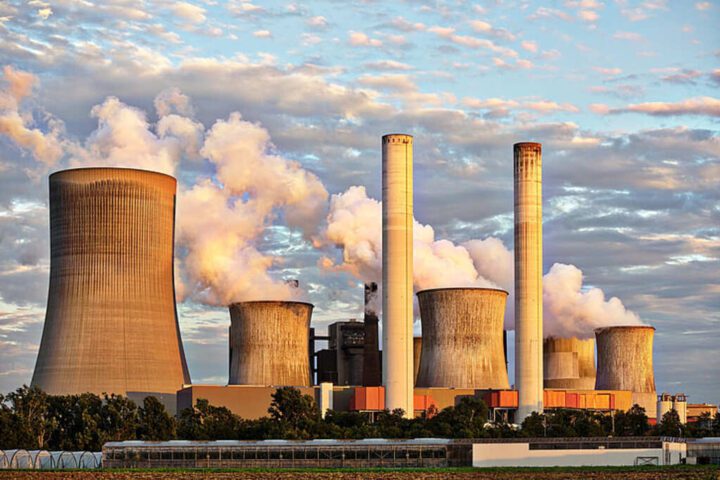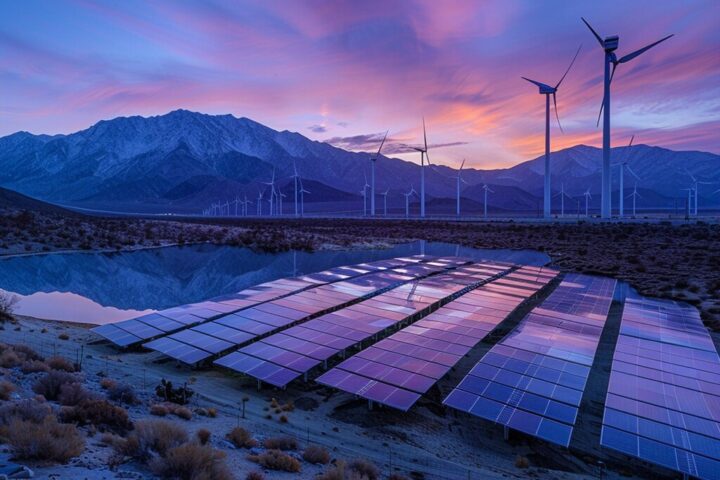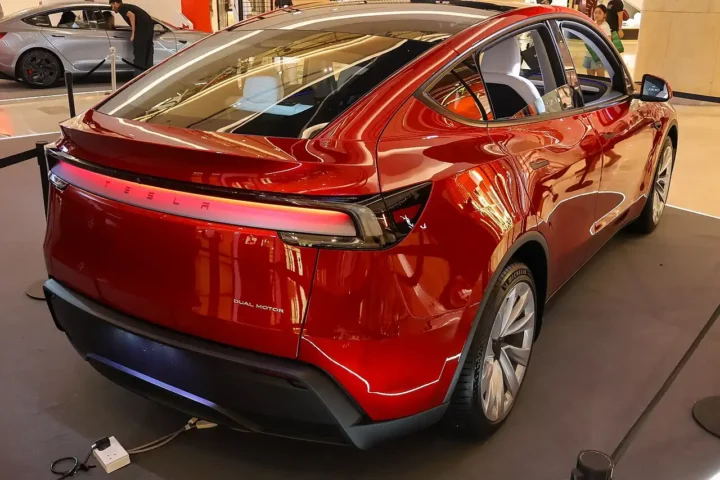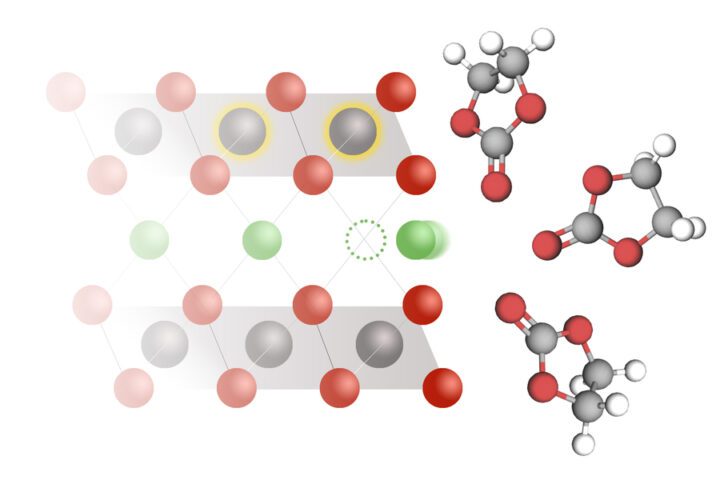Teresa Ribera will not create obstacles for nuclear energy. In fact, she considers its use necessary in Europe, and believes that the deployment of small modular reactors (known as SMRs) will “ensure a strong EU supply chain” and “leverage EU’s manufacturing and innovation capacities…”
This is stated in the 16-question questionnaire she had to face as a preliminary step to assuming the position of Commission Vice-President, marking a substantial change in her discourse. Until now, the current Vice-President for Ecological Transition had maintained a completely contrary stance on the use of nuclear energy. But what is reflected in the mentioned examination is far from her position in Spain, and also from that shown by Pedro Sánchez’s government.
“Regarding low-carbon nuclear energy, it should be noted that in February 2024, the Commission launched an Industrial Alliance to facilitate stakeholder cooperation at the EU level” with the aim to “accelerate the deployment of small modular reactors [SMRs] and ensure a strong EU supply chain, including a skilled workforce,” states who will likely be one of the most influential vice-presidents of Ursula von der Leyen’s Commission, or perhaps even the most influential.
The response specifically comes from the European Parliament’s Committee on Industry, Research and Energy question. In it, she also points out that “maximum efficiency in the deployment of different technologies is necessary, both mature ones and new technologies that could help the EU achieve its decarbonization beyond 2030.”
What has been surprising is the socialist’s reference to the need for Europe to streamline the processing times for renewable projects. Especially since Spain, like most of the 26 member states, has failed to meet the deadline for transposing the EU directive aimed at speeding up ‘permitting’, as the amalgam of administrative authorizations required for clean energy deployment is known in financial jargon. In the Spanish case, the various procedures can accumulate up to 200 steps, seven years of processing, and a bill of around three million euros per park.
“I will ensure that Member States deliver on faster and leaner permit procedures, reduce bureaucratic burden and duly implement the legal provisions to deploy renewables in newbuilds as well as renovated buildings,” Ribera asserts in one of her responses. She sent a warning to hydrocarbon giants, this time in line with her national argument: “Our taxes and pricing policies for the use of energy should be aligned with our long-term sustainable aims while contributing to closing our competitive gap. Phasing out fossil fuel subsidies is essential to this aim, as well as increasing energy efficiency.”
Teresa Ribera will be the Vice President for the Clean, Just and Competitive Transition of the European Commission. The current head of Ecological Transition in Pedro Sánchez’s government will assume one of the most sensitive responsibilities in EU policy and will be the most powerful socialist at the heart of the EU. “She will be responsible for competition policy… will guide the work to ensure that Europe stays on track for its goals set out in the European Green Deal and that we decarbonize and industrialize our economy at the same time,” Ursula von der Leyen explained during the presentation of her new cabinet, which will include five other executive vice presidencies.
Similar Posts
Von der Leyen first introduced Ribera, who will be one of the key pieces of the new European Commission due to the importance of the responsibilities granted by the German leader. The Spanish government had fought to position Ribera at the head of ecological transition at a time when economic and political interests have threatened the environmental agenda on the continent. The Moncloa (Government of Spain) is satisfied with the negotiations of recent weeks and believes that Spain will have the highest level of power since joining the EU community with the ability to influence all European industrial policy and supervision over the entire ecological transition.
The German leader has tried, however, to balance this portfolio with conservatives, who wanted a brake on these policies, by placing Dutch Wopke Hoekstra as Commissioner for Climate, Zero Emissions and Clean Growth. “He will continue working on implementation and adaptation, climate diplomacy and decarbonization, and will also be in charge of taxation,” she announced. When asked about the overlap of responsibilities with Ribera, she assured that overlap occurs in all portfolios. “…a main principle is coordination because… you cannot put reality in little boxes and separate the different topics from each other… everything is intertwined and interlinked, therefore all the commissioners, all the Executive Vice Presidents have to work very closely together…,” the president said.
Moreover, the Competition portfolio is one of the most substantial at a time when the old continent is fighting not to fall behind in the battle with the United States and China. Among its powers is the defense of antitrust rules in the EU. Ribera’s predecessor, liberal Margrethe Vestager, has become the ‘nightmare’ of big tech companies in recent years, targeting them for abuse of their dominant position in the European market. Just before leaving the position, the Danish official had two major judicial victories: the return of 14 billion euros by Apple to the Irish Treasury and the confirmation of a 2.4 billion euro fine for Google. Ribera, who has had energy companies in her crosshairs during her time in government, will now assume this role while also implementing laws regulating the EU’s digital ecosystem.
Ribera expressed that the portfolio is very good and that she assumes it with humility and commitment. She made these statements to journalists in Strasbourg, where several nominees had traveled to coincide with the European Commission President’s announcement. “President-elect von der Leyen committed that her Commission will follow-up on Parliamentary resolutions. I fully subscribe to this objective,” said Ribera. She has also assured that she will follow her predecessor’s roadmap regarding business “concentration” that could cause market damage.
Vice presidencies for Socialists, Liberals, EPP, and the Far Right
Ursula von der Leyen has announced the structure of the new community government, increasing the number of executive vice presidencies. In addition to Ribera, there will be three other women and two men. Achieving parity has been one of the great battles of the European Commission President, whom all governments, except Bulgaria, ignored in her request to propose two candidates (a man and a woman). Finally, she has achieved 40% female representation in an “intense negotiation” with capitals to increase this ratio, which was initially 22%.
The distribution of competencies made by Von der Leyen, who has assured that the entire College of Commissioners will have to work together to achieve the political objectives she outlined in her re-election, anticipates a battle with the Vice President for Prosperity and Industrial Strategy, French liberal Stéphane Séjourné, who has among his responsibilities “guide the work to place the conditions for our companies to thrive for investment and innovation, to economic stability and trade and economic security.”
The other vice presidencies go to PPE’s Finnish Henna Virkkunen (Technological Sovereignty, Security and Democracy); Romanian socialist Roxana Mînzatu (People, Skills and Preparedness) and former Estonian Prime Minister Kaja Kallas (liberal) will be High Representative replacing Josep Borrell. The most controversial appointment is that of Raffaele Fitto, Giorgia Meloni’s minister, who will be Vice President for Cohesion and Reforms. “He will be responsible for the cohesion policy portfolio, regional development and cities,” explained Von der Leyen, who has decided to give a vice presidency to the far right, despite socialists and liberals – who support her majority – having anticipated their rejection.
The Most Powerful Socialist in the EU
Ribera will be the socialist with the most powerful role in the EU, where she will hold a vice presidency representing the political family and the largest country in socialist hands (Germany in this case is represented by Von der Leyen). Last legislature initially corresponded to Dutch Frans Timmermans, who was the socialist candidate in the European elections, and Josep Borrell also held the vice presidency in his capacity as high representative.
The European Commission President has revealed the structure of the community government for her second term at a press conference after meeting with group spokespersons in the European Parliament, which will have to examine all candidates and then approve the entire cabinet.
As the members of the College of Commissioners are designated by the governments of the 27, the new composition of the European Commission will be more right-leaning than the outgoing team due to the general growth of right-wing and far-right forces in national elections in recent years.
Including Von der Leyen, there will be 15 members of the European People’s Party, five liberals – including French Foreign Minister Stéphane Séjourné, following the last-minute change promoted by the German, who required Emmanuel Macron to provide a different candidate than yesterday’s Internal Market Commissioner, Thierry Breton – four socialists, two from the far right (Italy and Hungary) and independent Maros Sefcovik who remains representing Slovakia’s populist government. Far-right Geert Wilders has kept conservative Wopke Hoekstra who joined the community government after Timmermans’ departure.


















